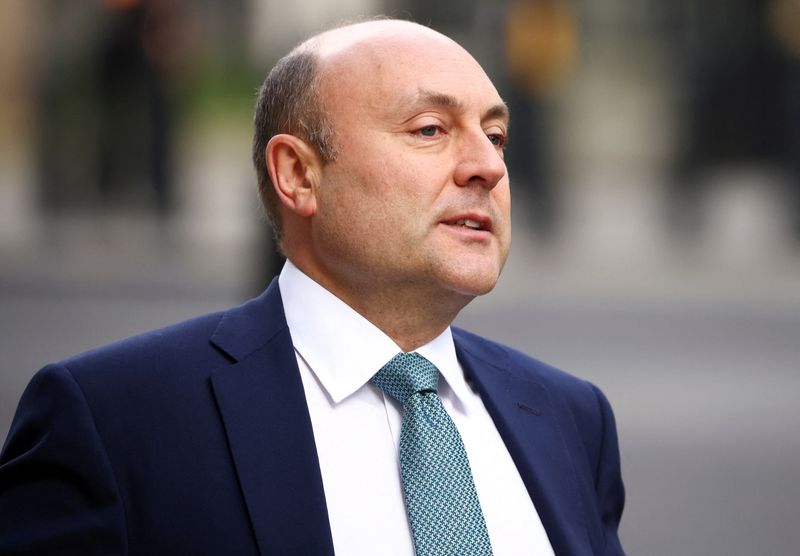By Huw Jones and David Milliken
LONDON (Reuters) - British banks should have to serve a customer even if they disagree with his or her lawful political views, and should apply anti-money laundering checks proportionately, financial services minister Andrew Griffith said on Tuesday.
Earlier on Tuesday Nigel Farage, the former Brexit Party leader, said British private bank Coutts had told him it was closing his accounts and had offered him a standard one with its parent group NatWest instead.
Griffith was asked about his views on recent issues around banking services for politicians and other 'politically exposed persons' by the House of Lords' Economic Affairs Committee, which did not name Farage directly.
"If executives within organisations hold themselves out to be 'fit and proper', then they would not seek to suppress the lawful expression of democratic views," Griffith said, referring to the conduct standards bank executives must meet.
"In terms of lawful freedom of expression, it's not right that anyone would be debanked on those grounds, that is not acceptable," he added
The politically exposed persons regime is part of global anti-money laundering rules that require banks to perform checks on individuals with prominent political functions.
Griffith said Britain's Financial Conduct Authority (FCA) now had powers under a new financial services law approved last week to revisit these rules.
"The Chancellor and I have asked the FCA to do just that, to review the application of those rules for unintended consequences that can always happen when you put a duty of care on an individual institution. Sometimes that can go too far," Griffith said.

The rules should be applied proportionately and not in a blanket way, he added.
"The second thing that we've asked is that the FCA look at creating a domestic politically exposed persons (category) to reflect the lower category of risk associated with those whose affairs are wholly domestic," Griffith said.